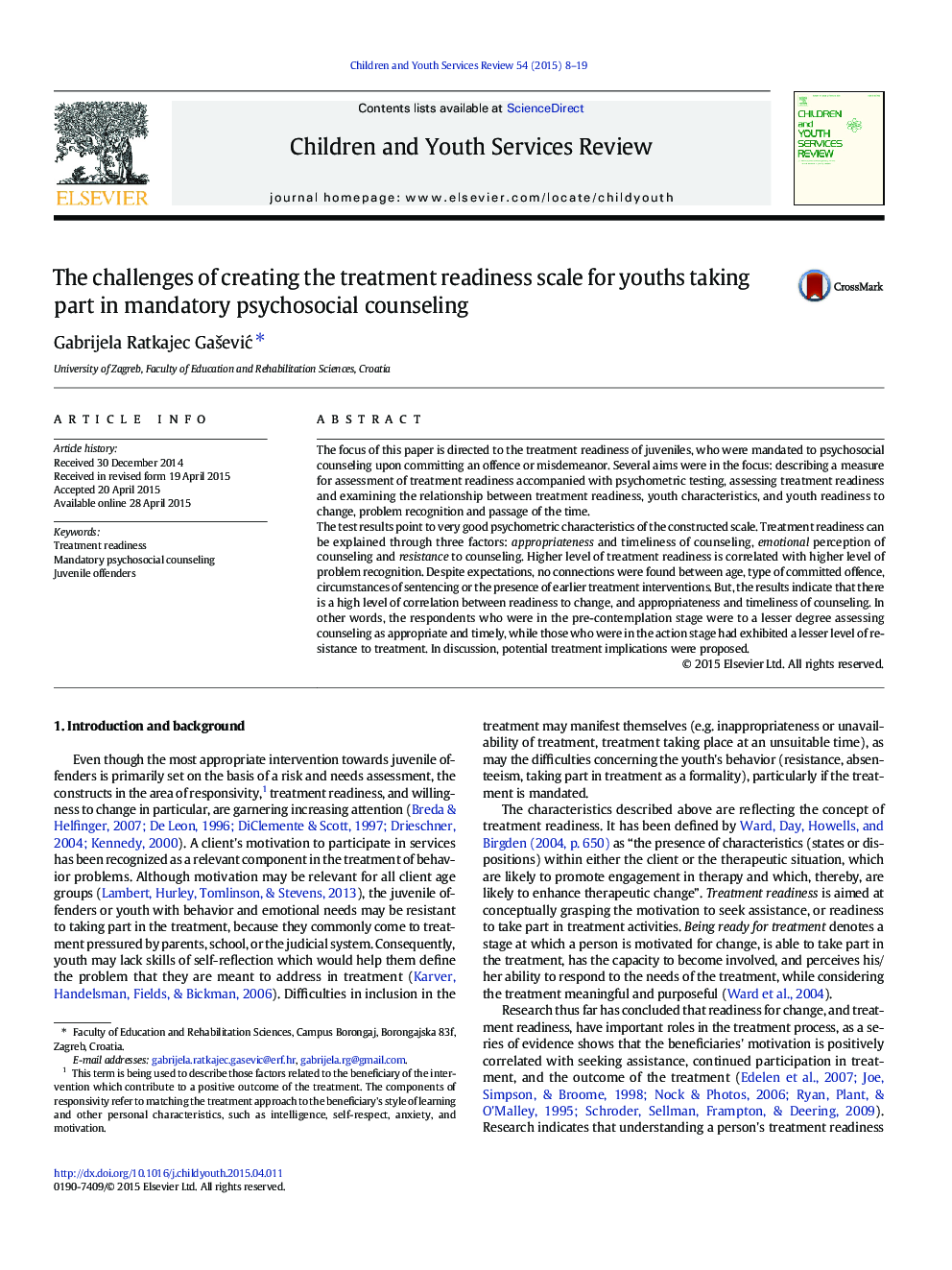| Article ID | Journal | Published Year | Pages | File Type |
|---|---|---|---|---|
| 345946 | Children and Youth Services Review | 2015 | 12 Pages |
•Treatment readiness among juveniles mandated to psychosocial counseling was explored.•The Treatment Readiness Assessment Scale was created.•Higher treatment readiness is related to problem recognition.•Higher treatment readiness is related to higher readiness to change.
The focus of this paper is directed to the treatment readiness of juveniles, who were mandated to psychosocial counseling upon committing an offence or misdemeanor. Several aims were in the focus: describing a measure for assessment of treatment readiness accompanied with psychometric testing, assessing treatment readiness and examining the relationship between treatment readiness, youth characteristics, and youth readiness to change, problem recognition and passage of the time.The test results point to very good psychometric characteristics of the constructed scale. Treatment readiness can be explained through three factors: appropriateness and timeliness of counseling, emotional perception of counseling and resistance to counseling. Higher level of treatment readiness is correlated with higher level of problem recognition. Despite expectations, no connections were found between age, type of committed offence, circumstances of sentencing or the presence of earlier treatment interventions. But, the results indicate that there is a high level of correlation between readiness to change, and appropriateness and timeliness of counseling. In other words, the respondents who were in the pre-contemplation stage were to a lesser degree assessing counseling as appropriate and timely, while those who were in the action stage had exhibited a lesser level of resistance to treatment. In discussion, potential treatment implications were proposed.
